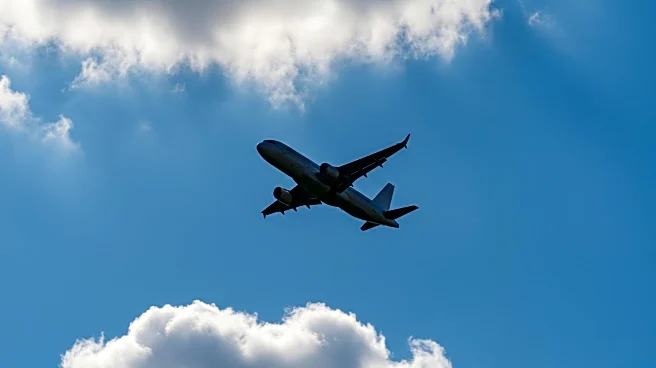What's Happening?
Air Canada announced on August 17 that it would resume flights following the Canadian government's intervention to end a strike by flight attendants. The strike, initiated by the Canadian Union of Public Employees (CUPE) on August 16, was in response to a rejected wage increase proposal. Canada's jobs minister, Patty Hajdu, exercised her authority under Section 107 of the Canadian Labor Code, directing the Canada Industrial Relations Board (CIRB) to arbitrate the dispute, requiring unionized staff to return to work. Air Canada plans to resume flights in the evening, although operations will take several days to normalize due to aircraft and crew being out of position. The airline had previously requested government intervention to prevent a work stoppage.
Why It's Important?
The resolution of the strike is crucial for Air Canada, as it allows the airline to resume operations and mitigate disruptions to its services. The intervention highlights the government's role in labor disputes, particularly in essential services like air travel. The strike and its resolution have implications for labor relations within the airline industry, potentially influencing future negotiations and government involvement. The situation underscores the challenges airlines face in balancing employee demands with operational needs, especially in a competitive industry where service disruptions can significantly impact revenue and customer satisfaction.
What's Next?
Air Canada will focus on normalizing its operations over the coming days, addressing the logistical challenges posed by the strike. The CIRB will review statements from both Air Canada and CUPE to determine further actions. The union has expressed its intention to continue advocating for better wages and conditions, indicating potential future disputes. The government may face scrutiny over its intervention, with stakeholders evaluating the fairness and effectiveness of its actions in labor disputes.
Beyond the Headlines
The intervention raises questions about the balance between government authority and union rights in labor disputes. The quick resolution may set a precedent for future government involvement in similar situations, potentially affecting labor dynamics across industries. The strike also highlights broader issues of wage standards and employee rights, prompting discussions on how these are addressed within the airline industry and beyond.









